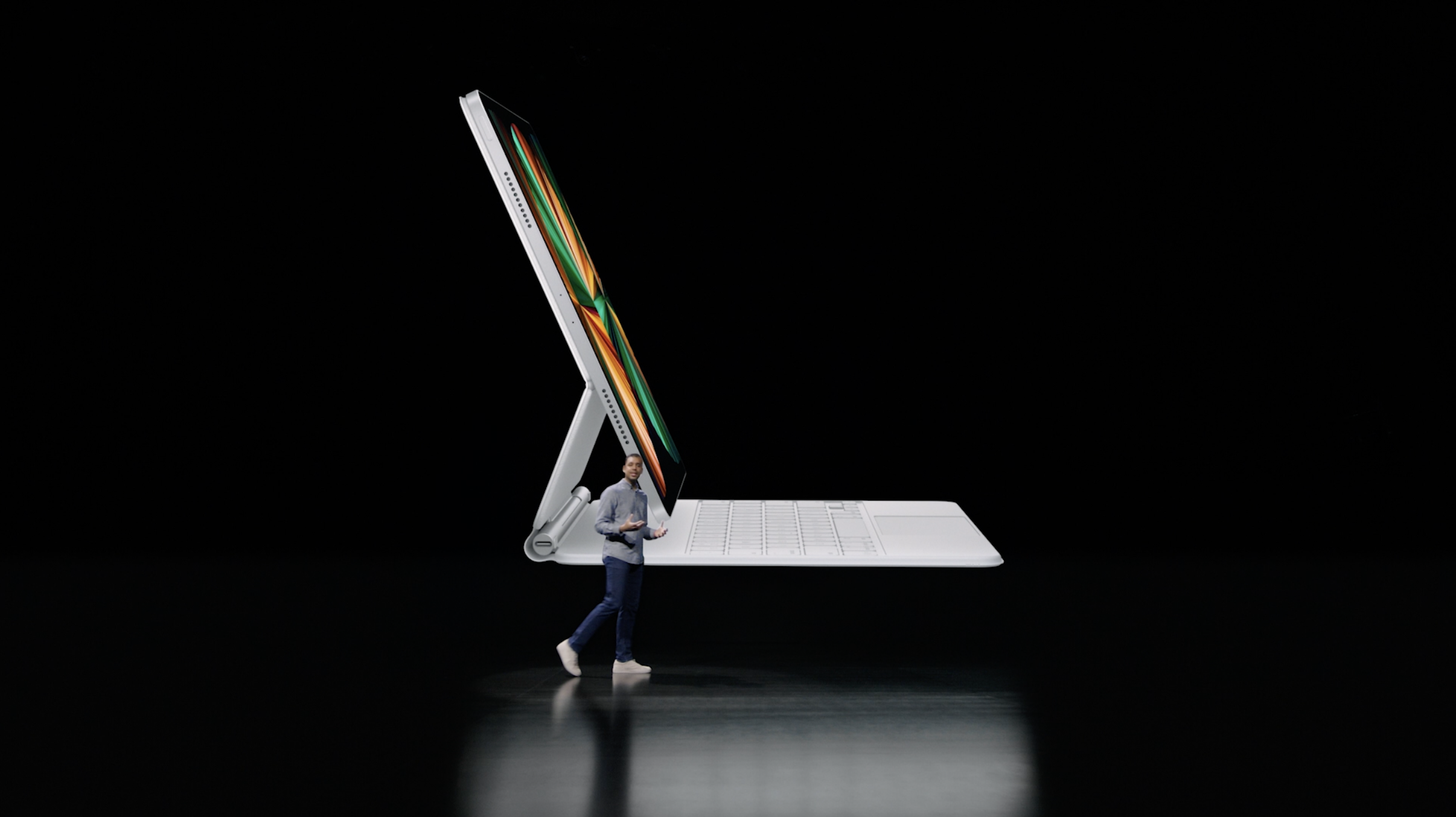
- The iPad Pro feels more like an answer to 2-in-1 Windows devices than Apple's MacBook line.
- It's following the same evolution as hybrid Windows devices, especially when it comes to camera upgrades.
- The iPad Pro is where we're seeing forward-looking new tech from Apple, not the MacBook.
- See more stories on Insider's business page.
Apple's iPad Pro has always seemed like an alternative to the laptop. After all, it has a laptop-sized screen, it's designed to work best with a keyboard, and it now supports trackpad input.
But the company took that idea a step further on Tuesday with the introduction of its newest iPad Pro. The updated model comes with Apple's powerful M1 chip – the same processor that drives its latest MacBook laptops – new mini-LED display technology with improved brightness and contrast on the larger model, 5G support, and Thunderbolt connectivity.
The announcement served as yet another sign that the iPad Pro is indeed Apple's answer to the 2-in-1 Windows laptops that have dominated the PC industry over the last decade. It reinforces the idea that we'll probably never see a touchscreen Mac, because that's exactly what the iPad Pro has become.
The iPad Pro is following a similar path as new Windows laptops
Many of the upgrades we've been seeing on Windows laptops in recent months are also present on the new iPad Pro. These include better microphones and cameras for conference calls, thinner and lighter designs that run on processors based on the same basic architecture as those in our phones, and 5G integration.
Just look back to some of the most interesting laptop announcements from this year's CES conference for evidence. Lenovo's new IdeaPad 5G laptop, for example, comes with 5G and runs on Qualcomm's Snapdragon 8cx processor. That chip is built on the ARM architecture that's commonly found in the processors that power smartphones and tablets, similar to Apple's M1 chip.
HP's Elite Dragonfly Max, meanwhile, comes with a 5-megapixel camera and four wide-range microphones that use artificial intelligence to optimize audio - an upgrade that was clearly intended for the work-from-home era.
Apple now has its own take on how to improve video conferencing as it relates to the iPad Pro. The tablet comes with a new feature called Center Stage, which leverages the iPad Pro's new wide-angle front camera and machine learning to automatically keep you in the shot as you move. Since it runs on M1, it also uses Apple's image signal processor, which greatly improves color and brightness as I found when reviewing the MacBook Air.
Of course, some of the additions on the newest model address the iPad Pro's shortcomings when compared to laptops. The 2021 model comes with Thunderbolt support, for example, which enables support for more powerful accessories like faster storage devices.
And now that the iPad Pro runs on M1, there's a chance that app compatibility between Mac and iPad will become easier to manage since they're powered by the same chip architecture.
The iPad Pro is Apple's vision for the future of computing
It's unclear whether the iPad Pro has been a hit for Apple in terms of sales because the company doesn't specify those details in its earnings reports. But what has become clear is that the iPad Pro is Apple's vision for the future of the personal computer, despite the fact that it's not technically a laptop.
It's the iPad Pro, not the MacBook Pro or MacBook Air, that includes new sensors like Apple's Lidar scanner, a new 12.9-inch display that's brighter and packs in more pixels per inch, and features such as Center Stage. The MacBook Air and MacBook Pro were among the first computers to launch with Apple's M1 chip, but the iPad Pro feels like the first computer that was really designed to take advantage of it.
The MacBook Air and Pro are excellent laptops, but they feel antiquated in some respects. Unlike modern Windows machines, they lack qualities like flexibility, touchscreens, nearly borderless displays, and facial recognition technology, just to name a few. The iPad Pro, however, has all of those features and more.
I don't know that most people will be willing to give up their MacBooks for an iPad Pro just yet. And Apple doesn't want you to; it's clearly very invested in its Mac lineup. But I do think the iPad Pro is the device to keep an eye on if you really want to understand Apple's perspective as it relates to the future of computing.
